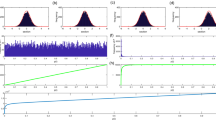Abstract
Purpose: To investigate genes of critical areas, including cell cycle/growth control, apoptosis, oncogene/tumor suppressors and growth factor/cytokines, that are differentially expressed in nasopharyngeal carcinoma. Methods: The Human Cancer cDNA Atlas, which contains 588 genes relating to tumor biology, was used to screen normal nasopharyngeal tissue, nasopharyngeal cancer (NPC). The reverse transcription/polymerase chain reaction was used to confirm the expression pattern of some genes identified by Atlas hybridization. Results: The differentially expressed cell cycle/growth control regulators in NPC showed a stronger tendency toward cell proliferation with the up-regulation of cyclin D1, cyclin D2 etc. The expression pattern of apoptosis-related genes demonstrated the up-regulation of both anti-apoptotic factors such as the BCL-2-related protein A1, TRAF3, the inhibitor of apoptosis protein A1 (IAP1) and apoptotic pathway elements such as Fas/Apo-1, Apo-2 ligand etc. Among oncogenes/tumor suppressors, MDM2, STAT1 and STAT2 were found to be up-regulated in NPC. The expression profile of growth factors/cytokines showed the up-regulation of many growth-enhancing factors such as EGR1, tumor-derived growth factor 1, platelet-derived growth factor A chain etc. as well as Th1-type cytokines e.g. interleukin-1β and interferons. A smaller number of genes were down-regulated in nasopharyngeal cancer, such as those encoding ERK1, Raf, secreted apoptosis-related protein 1, CD27BP, transforming growth factor β2, pre-B-cell-stimulating factor homologue etc. Conclusion: The consistent tendency toward cell proliferation, the possibility of a stronger anti-apoptotic force that operates on the normal apoptotic pathway, or the autocrine or paracrine growth factors may account for the development of NPC. Some genes are reported for the first time to have changed expression in nasopharyngeal carcinoma. The simple, quick, and high-throughput method of profiling gene expression by cDNA array hybridization provides us with a quick overview of key factors that may be involved in NPC, and may identify genes suitable for further study of carcinogenesis mechanism or targets for possible molecular diagnosis or therapy.
Similar content being viewed by others
Author information
Authors and Affiliations
Additional information
Received: 6 October 1999 / Accepted: 31 January 2000
Rights and permissions
About this article
Cite this article
Xie, L., Xu, L., He, Z. et al. Identification of differentially expressed genes in nasopharyngeal carcinoma by means of the Atlas human cancer cDNA expression array. J Cancer Res Clin Oncol 126, 400–406 (2000). https://doi.org/10.1007/PL00008488
Issue Date:
DOI: https://doi.org/10.1007/PL00008488




